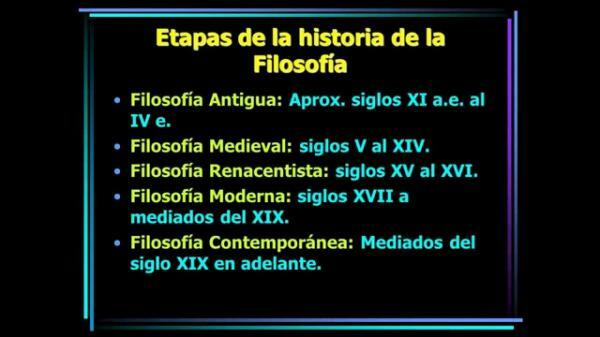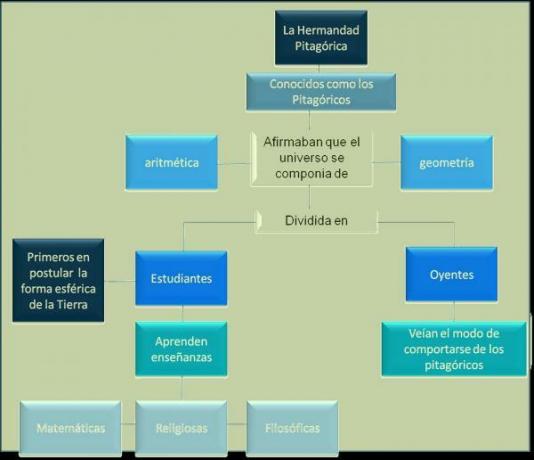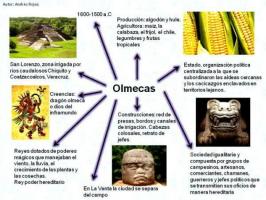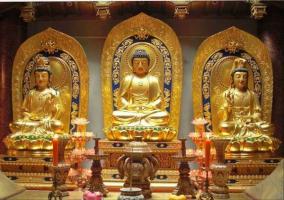Stages of ANCIENT PHILOSOPHY and its representatives

We dedicate this lesson from a TEACHER to the different stages of ancient philosophy and their representatives. The Greek thinkers, the first philosophers, tried to explain nature from the human being, they no longer resorted to gods or supernatural forces. Thus, the pre-Socratics sought the Arche or the principle of all things, the law that orders and standardizes phenomena. Such of Miletus, Anaximander, Anaximenes, Heraclitus, Parmenides, Zeno of Élea, Democritus, Anaxagoras and Empedocles. Reason is the only way to access the truth. The reason for things is sought, their cause. And in this way, ancient philosophy lays the foundation for modern philosophy.
Index
- First stage of ancient philosophy: Presocratic Philosophy
- Ionian school, the second of the stages of ancient philosophy
- Pythagorean school
- Elea School
- Atomists, school represented by Democritus
- The sophist stage. Main managers
- The stage of Socrates, Plato and Aristotle
- Hellenistic and Roman Philosophy
First stage of ancient philosophy: Presocratic Philosophy.
We begin this lesson on the stages of ancient philosophy and their representatives by talking about the first of them all: the Presocratic stage.
By pre-Socratic philosophy is understood the set of thinkers, who although they did not share a common philosophy, inaugurate the philosophy modern, by resorting to reason, as a way to reach the truth, regardless of mythological or religious explanations, and which are before Socrates. His goal was to find the source of everything there is, the because of the causes, the cause and essence of the world.
Ionic school, the second of the stages of ancient philosophy.
We will now speak of the second of the stages of ancient philosophy and its representatives, the Ionian School. The main representatives of said school are the following:
Thales of Miletus (c. 625-c. 546 a. C.)
Thales of Miletuswas a Miletus-born Greek philosopher, the father of Greek philosophy, and one of the Seven Sages of Greece, even predicted an eclipse of the sun that occurred on May 28, 585 BC. C, and it is thought that he introduced geometry to Greece. Well, for this thinker, the original principle of all things is Water, from which everything proceeds and to which everything returns again.
Anaximander (c. 611-c. 547 a. C.)
Greek philosopher, mathematician and astronomer, born in Miletus and disciple of Thales of Miletus. This thinker discovered the obliquity of the ecliptic, and introduced the sundial in Greece. He was also the inventor of cartography. He affirms that the origin of the Universe is the product of separation of opposites from the primary subject.
Anaximenes (c. 570-500 BC C.)
Greek philosopher of nature, born in Miletus (Ionia), and who affirms that air is the primary element and to explain it, he resorts to the notions of condensation and rarefaction. From these two processes, the air is transformed, the air is transformed into solid matter (when it cools), as well as into water and fire (when it becomes rare).
Pythagorean school.
Continuing with this lesson on stages of ancient philosophy and its representatives, we will now talk about one of the most outstanding philosophers who created his own school: Pythagoras (c. 582-c. 500 BC C.).
Greek philosopher and mathematician, born on the island of Samos, Pythagoras, who considers that the origin of everything there is are mathematical principles and especially numbers.The number is the essence of all things. This school, considered a sect, believed in immortality and in the transmigration of the soul. Pythagoras even claimed that he remembered all his past lives.

Elea School.
The main representatives of this stage of ancient philosophy are:
Heraclitus of Ephesus, the Obscure One (c. 540-c. 475 a. C.)
Greek philosopher, born in Ephesus, who affirmed that fire was the origin of all things, and that, from a process of condensation and rarefaction, it creates the phenomena of the physical world. Everything in nature, he says, is subject to change. Everything changes, nothing remains so becoming is part of the to be, and therefore as things change, they also participate in the not to be.
Parmenides of Elea (c. 515-c. 440 a. C)
Greek philosopher, born in Elea who defends the existence of a Be absolute, considering inconceivable the not to be, and unlimited. He affirmed that change does not exist in reality, since natural things are nothing more than appearance, and that the true being cannot be known through the senses, but through reason.
Empedocles (c. 493 a. C.-433 a. C.)
Empedocles he was a Greek philosopher, statesman, and poet, born in Agrigentum and a disciple of Pythagoras and Parmenides. He affirmed that all things are composed of four main elements: earth, air, fire and water and that love and hate, two active and opposite forces, acting on these 4 elements, combining and separating them, being all reality is cyclical.
Anaxagoras (c. 500-428 a. C.)
Greek philosopher, born in Clazomenae. Introduces the notion of nous, reason, and defends the existence of infinite atoms that were ordered by the original principle or nous, that shapes everything there is.
Atomists, school represented by Democritus.
Democritus (c. 460 a. C.-370 a. C.) was a Greek philosopher who develops the atomistic theory of the universe, according to which, all things are composed of tiny, invisible and indestructible particles of pure matter, which move in Infinite empty space and the creation of the world is the result of rotating movements of atoms in space, which collide and form the matter.
The sophist stage. Main managers.
The sophists were highly respected in Athens, but due to their skepticism and relativism, they fell victim to attacks from philosophers such as Socrates, Plato, and Aristotle. Its main representative was Protagoras, who sums up the philosophy of this heterogeneous school of thinkers in his phrase "Man is the measure of all things”Is representative of the philosophical attitude of this school.
A) Yes, they deny the existence of an absolute truth, objective knowledge, stripping all value, both science and ethics and religion. Morality, they claim, is conventional, and ethics must conform to one's own human interests.
The stage of Socrates, Plato and Aristotle.
Continuing with this lesson on the stages of ancient philosophy and its representatives, we must now talk about the mark left by three great thinkers of that time. They are as follows:
Socrates (c. 470-c. 399 a. C.)
Socrates wrote nothing, but his teachings were collected in the dialogues of his famous disciple Plato and that he considers that the soul, the immortal part of the human being, carries the truth within him, and that through from reflection and reason, it is possible to get to know it. The truth is inside the human being, and the maieutics, or art of the midwives, would be the method that Socrates would use to bring it out. His mother was a midwife and appropriated her method to transform it into a mode of reflection. The Socratic schools they were the philosophical legacy that Socrates left in society.
Plato (c. 428-c. 347 a. C.)
Plato, disciple of Socrates, collects in his dialogues all the philosophy of Socrates and studied different topics such as politics, metaphysics, theology and epistemology, which have laid the foundations of western thought. The theory of ideas suppose a division of the world in two: the sensible and the intelligible, the latter, the only true one, in the ideas inhabit, the first being a mere copy of the second, of which it participates, and only in that sense, it can be said that it is real.
Aristotle (384-322 a. C.)
Aristotle, a disciple of Plato, proposes a philosophy different from that of his teacher when deny the existence of the sensible world and of essences separated from things. There is only one world, he says, the sensible one, and it can only be known through experience. Thus, he will speak of potency and act to explain movement and change, the act being the substance (the compound of matter and form) at a given moment, and the power, the capacity to be, but not yet it is.
Hellenistic and Roman Philosophy.
And we finish this lesson on the stages of ancient philosophy and its representatives to talk about the Hellenistic philosophy and Roman.
Here they highlight theEpicureanism, a philosophical school that defends that the human being seeks pleasure and turns away from pain, and that therefore, pleasure must be the foundation of morality; the stoics, who affirm that the basis of a good life is the control and mastery of the passions; the cynical who bet on autarky; or the skeptical who doubt any claim to absolute truth, affirming the relativity of everything there is.
If you want to read more articles similar to Stages of ancient philosophy and its representatives, we recommend that you enter our category of Philosophy.
Bibliography
"Abbreviated Encyclopedic Dictionary"; (1957). Editorial, Espasa - Calpe, S.A. Volume II. Madrid Spain.
MARIAS, Julián; (1960). "History of Philosophy". 12th edition. Editions, Castilla. Madrid Spain.



